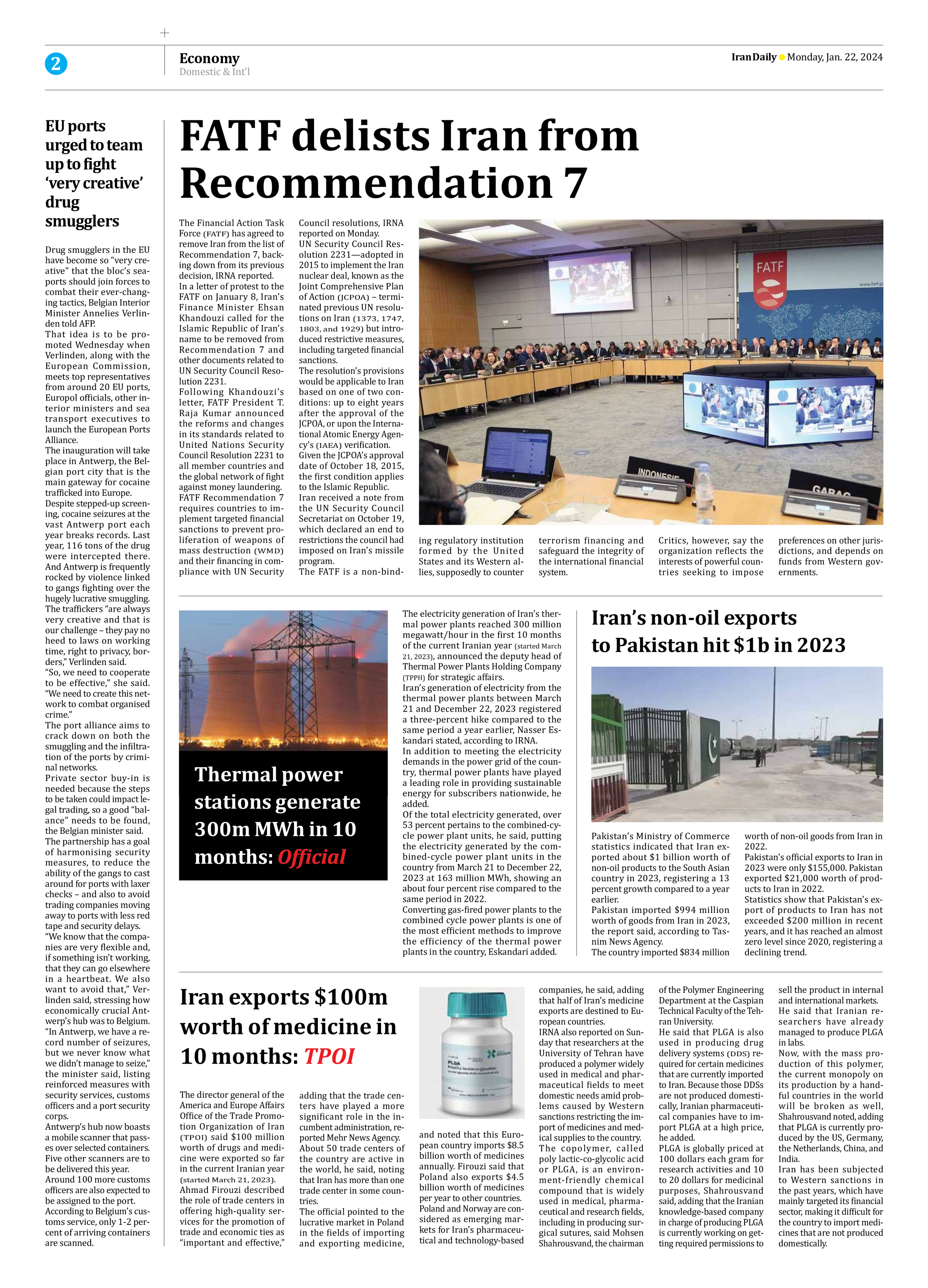
FATF delists Iran from Recommendation 7
The Financial Action Task Force (FATF) has agreed to remove Iran from the list of Recommendation 7, backing down from its previous decision, IRNA reported.
In a letter of protest to the FATF on January 8, Iran’s Finance Minister Ehsan Khandouzi called for the Islamic Republic of Iran’s name to be removed from Recommendation 7 and other documents related to UN Security Council Resolution 2231.
Following Khandouzi’s letter, FATF President T. Raja Kumar announced the reforms and changes in its standards related to United Nations Security Council Resolution 2231 to all member countries and the global network of fight against money laundering.
FATF Recommendation 7 requires countries to implement targeted financial sanctions to prevent proliferation of weapons of mass destruction (WMD) and their financing in compliance with UN Security Council resolutions, IRNA reported on Monday.
UN Security Council Resolution 2231—adopted in 2015 to implement the Iran nuclear deal, known as the Joint Comprehensive Plan of Action (JCPOA) – terminated previous UN resolutions on Iran (1373, 1747, 1803, and 1929) but introduced restrictive measures, including targeted financial sanctions.
The resolution’s provisions would be applicable to Iran based on one of two conditions: up to eight years after the approval of the JCPOA, or upon the International Atomic Energy Agency’s (IAEA) verification.
Given the JCPOA’s approval date of October 18, 2015, the first condition applies to the Islamic Republic.
Iran received a note from the UN Security Council Secretariat on October 19, which declared an end to restrictions the council had imposed on Iran’s missile program.
The FATF is a non-binding regulatory institution formed by the United States and its Western allies, supposedly to counter terrorism financing and safeguard the integrity of the international financial system.
Critics, however, say the organization reflects the interests of powerful countries seeking to impose preferences on other jurisdictions, and depends on funds from Western governments.







